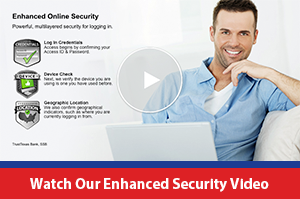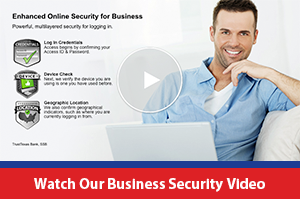Simple Steps to Online Safety
Staying safe and secure online is our shared responsibility. Here is easy-to-follow, actionable advice for everyone.
- STOP: make sure security measures are in place.
- THINK: about the consequences of your actions and behaviors online.
- CONNECT: and enjoy the internet.
It is critical for anyone using the internet to continually learn about and consistently practice good cybersecurity habits. To better protect yourself, you should secure your home networks and mobile devices and take the time to learn how to use the internet more safely, securely and responsibly. View these tip sheets to address the top consumer cyber concerns, provide simple steps to protect against these concerns and teach you what to do if you fall victim to cybercrime.
Online Cybersecurity Tip Sheet For All Digital Citizens
Safe Online Shopping
Stay #CyberAware While On the Go – Safety Tips for Mobile Devices
What To Do If You Are A Victim Of Cybercrime
Tips for Passwords & Securing Your Accounts
Privacy Tips for Using Public Computers & Wireless Networks
Simple Cybersecurity Tips for Staying Safe Online During Tax Time
More Cybersecurity Tips
Understand your digital profile.
Internet-based devices are present in every aspect of our lives: at home, school, work, and on the go. Constant connection provides opportunities for innovation and modernization, but also presents opportunities for potential cybersecurity threats that can compromise your most important personal information. Understand the devices and applications you use every day to help keep you and your information safe and secure.
- Top Tip: Never click and tell. Limit what information you post on social media—from personal addresses to where you like to grab coffee. What many people don’t realize is that these seemingly random details are all criminals need to know to target you, your loved ones, and your physical belongings—online and in the physical world. Keep Social Security numbers, account numbers, and passwords private, as well as specific information about yourself, such as your full name, address, birthday, and even vacation plans. Disable location services that allow anyone to see where you are – and where you aren’t – at any given time. Read the Social Media Cybersecurity Tip Sheet for more information.
- Top Tip: Keep tabs on your apps. Most connected appliances, toys, and devices are supported by a mobile application. Your mobile device could be filled with suspicious apps running in the background or using default permissions you never realized you approved—gathering your personal information without your knowledge while also putting your identity and privacy at risk. Check your app permissions and use the “rule of least privilege” to delete what you don’t need or no longer use. Learn to just say “no” to privilege requests that don’t make sense. Only download apps from trusted vendors and sources.
Tip Sheets:
Cybersecurity While Traveling
Online Privacy
Social Media Cybersecurity
Internet of Things
Secure your digital profile.
Cybercriminals are very good at getting personal information from unsuspecting victims, and the methods are getting more sophisticated as technology evolves. Protect against cyber threats by learning about security features available on the equipment and software you use. Apply additional layers of security to your devices – like Multi-Factor Authentication – to better protect your personal information.
- Top Tip: Double your login protection. Enable multi-factor authentication (MFA) to ensure that the only person who has access to your account is you. Use it for email, banking, social media, and any other service that requires logging in. If MFA is an option, enable it by using a trusted mobile device, such as your smartphone, an authenticator app, or a secure token—a small physical device that can hook onto your key ring. Read the Multi-Factor Authentication (MFA) How-to-Guide for more information.
- Top Tip: Shake up your password protocol. According to National Institute for Standards and Technology (NIST) guidance, you should consider using the longest password or passphrase permissible. Get creative and customize your standard password for different sites, which can prevent cybercriminals from gaining access to these accounts and protect you in the event of a breach. Use password managers to generate and remember different, complex passwords for each of your accounts. Read the Creating A Password Tip Sheet for more information.
- Top Tip: Play hard to get with strangers. Cybercriminals use phishing tactics, hoping to fool their victims. If you’re unsure who an email is from—even if the details appear accurate— or if the email looks “phishy,” do not respond and do not click on any links or attachments found in that email. When available use the “junk” or “block” option to no longer receive messages from a particular sender.
Tip Sheets:
Creating A Password
A How-To-Guide For Multi-Factor Authentication
5 Ways To Be Cyber Secure At Work
Phishing
E-Skimming
Maintain your digital profile.
Every click, share, send, and post you make creates a digital trail that can be exploited by cybercriminals. To protect yourself from becoming a cybercrime victim you must understand, secure, and maintain your digital profile. Be familiar with and routinely check privacy settings to help protect your privacy and limit cybercrimes.
- Top Tip: If you connect, you must protect. Whether it’s your computer, smartphone, game device, or other network devices, the best defense against viruses and malware is to update to the latest security software, web browser, and operating systems. Sign up for automatic updates, if you can, and protect your devices with antivirus software. Read the Phishing Tip Sheet for more information.
- Top Tip: Stay protected while connected. Before you connect to any public wireless hotspot – like at an airport, hotel, or café – be sure to confirm the name of the network and exact login procedures with appropriate staff to ensure that the network is legitimate. If you do use an unsecured public access point, practice good Internet hygiene by avoiding sensitive activities (e.g., banking) that require passwords or credit cards. Your personal hotspot is often a safer alternative to free Wi-Fi. Only use sites that begin with “https://” when online shopping or banking.
Tip Sheets:
Social Media Bots Overview
Understanding Foreign Interference In 5 Steps
Identity Theft and Internet Scams
5 Steps To Protecting Your Digital Home
|

